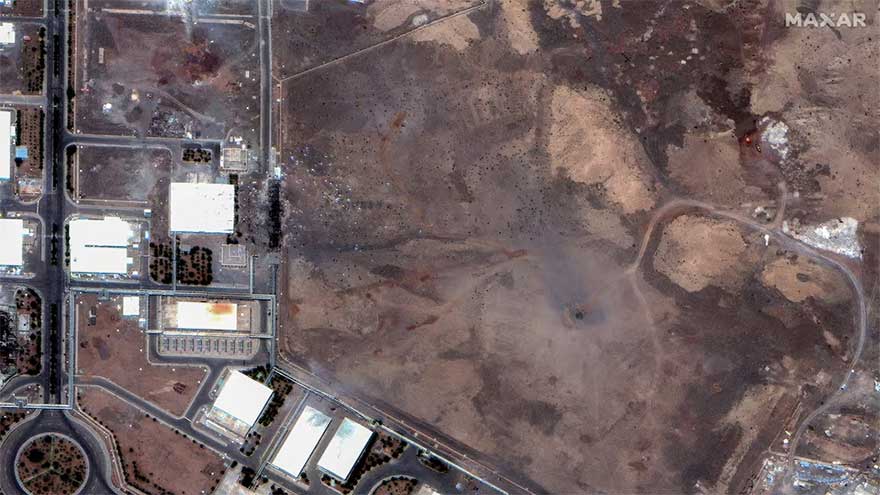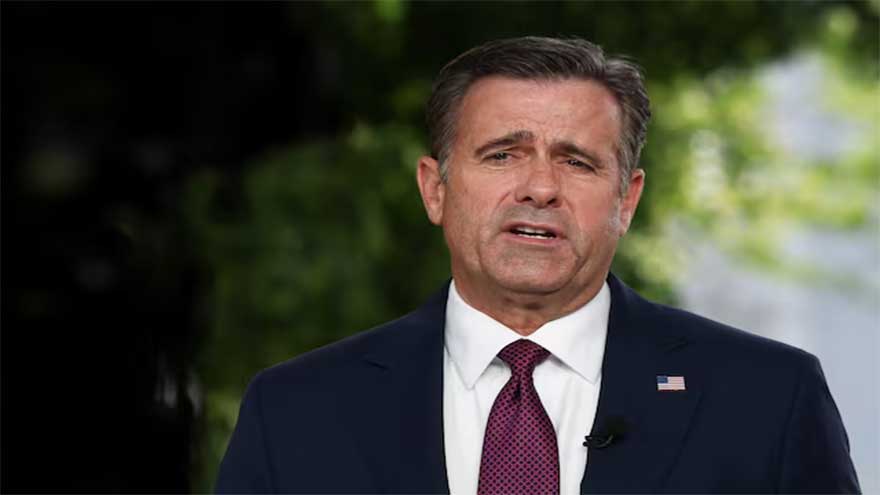CIA says intelligence indicates Iran's nuclear programme severely damaged
World
Trump said the US strikes were responsible for ending the war between Israel and Iran
Conflicting assessments have emerged within the US intelligence community over the extent of damage
Ratcliffe claimed that the CIA had obtained “new intelligence from a historically reliable source or method”
President Trump argued that the damage was severe
WASHINGTON (Reuters) – Central Intelligence Agency Director John Ratcliffe on Wednesday said a body of credible intelligence indicated that Iran's nuclear programme was severely damaged by recent US strikes, and that it would take years to be rebuilt.
"This includes new intelligence from a historically reliable and accurate source/method that several key Iranian nuclear facilities were destroyed and would have to be rebuilt over the course of years," Ratcliffe said in a statement.
Conflicting assessments have emerged within the US intelligence community over the extent of damage inflicted on Iran’s nuclear infrastructure following recent US strikes.
According to a CNN report, former Director of National Intelligence John Ratcliffe claimed that the CIA had obtained “new intelligence from a historically reliable source or method,” indicating that multiple key Iranian nuclear facilities were destroyed and would take years to rebuild. Ratcliffe did not elaborate on the nature of the intelligence or clarify whether his remarks reflected an official agency assessment or his personal interpretation.
His comments appeared to contradict an earlier analysis by the Defense Intelligence Agency (DIA), which suggested the weekend strikes had not fully destroyed critical components of Iran’s nuclear program and would likely delay its progress by only several months.
Adding to the uncertainty, current Director of National Intelligence Tulsi Gabbard stated on X (formerly Twitter) that new intelligence confirmed Iran’s facilities had been “destroyed.” She wrote, “New intelligence confirms what @POTUS has stated numerous times: Iran’s nuclear facilities have been destroyed.” Gabbard also asserted that if Iran decided to rebuild, it would need to completely reconstruct the Natanz, Fordow, and Esfahan facilities — a process she claimed could take years. No evidence was provided to support the claim.
The contrasting statements reflect ongoing uncertainty within the US intelligence community over the actual impact of the strikes and the future trajectory of Iran’s nuclear capabilities.
TRUMP PLAYS DOWN INTELLIGENCE REPORT
US President Donald Trump compared the impact of American strikes on Iranian nuclear sites to the end of World War Two on Wednesday, arguing that the damage was severe even though available intelligence reports were inconclusive.
His comments followed reports by Reuters and other media outlets on Tuesday revealing that the US Defense Intelligence Agency had assessed that the strikes had set back Iran's nuclear program by just a few months, despite Trump and administration officials saying it had been obliterated.
"The intelligence was ... very inconclusive," Trump told reporters at a NATO summit on Wednesday while meeting with Secretary General Mark Rutte.
"The intelligence says, 'We don't know, it could have been very severe.' That's what the intelligence says. So I guess that's correct, but I think we can take the 'we don't know.' It was very severe. It was obliteration."
The Trump administration has not disputed that the DIA assessment exists, but Trump described it as preliminary.
In a series of at-times testy exchanges at a press conference later in the day, Trump sharply criticized journalists for their reporting on the assessment.
He suggested the reports were an attack against the pilots who flew the bombing mission over the weekend targeting Iran's key nuclear sites.
Trump said the US strikes were responsible for ending the war between Israel and Iran.
"When you look at Hiroshima, if you look at Nagasaki, that ended a war, too," Trump said, referring to a pair of U.S. nuclear strikes on Japan in 1945 that essentially ended World War II. "This ended a war in a different way."
SUCCESS OF IRAN STRIKES CRUCIAL FOR TRUMP
Trump has an uneasy relationship with the US intelligence community, and the success of the strikes is politically critical to him.
His right-leaning supporters had argued loudly beforehand that such military intervention was inconsistent with Trump's domestic-focused "Make America Great Again" agenda and his promise to avoid foreign entanglements.
Trump has countered by insisting that Iran must never be allowed to obtain a nuclear weapon – a goal that an accurate, decisive attack would support.
He was flanked at both appearances by Secretary of State Marco Rubio and Secretary of Defense Pete Hegseth, who also cast doubt on the reliability of the DIA assessment. Hegseth in particular cast much of his fury at the news media.
"When you actually look at the report - by the way, it was a top secret report - it was preliminary, it was low-confidence," Hegseth said in the appearance alongside Rutte. "This is a political motive here."
He said the FBI was investigating a potential leak. Rubio suggested that those responsible for sharing the report had mischaracterized it, saying: "This is the game they play."
At the summit, NATO member states announced their joint intention to raise defense spending to 5% of gross domestic product, which the Trump administration pointed to as a significant foreign policy victory.
At the concluding press conference, Trump referenced a statement from the Israel Atomic Energy Commission – that country's nuclear regulator – assessing that Iran's nuclear program had been set back by "many years."
He said the US plans to meet with the Iranians next week to discuss next steps regarding their nuclear program, but he said he did not think Iran would want to get back into "the nuclear business" after the strikes.




